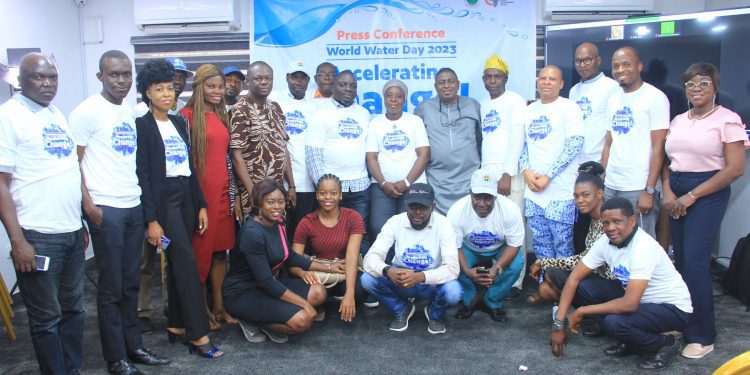Civil Society actors, labour unions and community activists under the auspices of Our Water, Our Right Africa Coalition (OWORAC) have reiterated the need for the Nigerian Government to shun every attempt to privatize water as it would not serve any positive purpose, but rather compound the problems of Nigerians with regards to accessing water.
The coalition members also explained that water privatization has not yielded positive results in most of the countries where it has been adopted, and as such, there is no need for the Nigerian Government to adopt failed models.
Speaking during a press briefing in commemoration of World Water Day 2023, with the theme Accelerate Change, the activists urged the Nigerian Government to exhibit concern for its citizens, and thereby halt every plan, such as water privatization, which could affect the populace.
Akinbode Oluwafemi, the Executive Director of the Corporate Accountability and Public Participation Africa (CAPPA) while addressing journalists explained that there are compelling evidence of failed privatization across the world, adding that it is important for the Nigerian Government to accelerate change away from the exploitative model of privatization and in favour of democratic public ownership and control of water resources.
Oluwafemi stressed that “the theme of this year’s World Water Day commemoration reinforces the need for governments to urgently consider solutions to the water crisis on the continent within the realm of democratic community-controlled and publicly funded options.
“Water privatization is a failed option which only puts profit above the people,” he added.
He warned International Financial Institutions (IFIs) such as the World Bank, International Monetary Fund (IMF) and the African Development Bank (AfDB) to shun the water privatization agenda in Africa.
Corroborating him, Aderonke Ige, Associate Director at CAPPA said IFIs usually weaponize loans that they give to Low and Middle Income Countries like Nigeria thereby compelling the government to go into Public Private Partnerships.
Ige who stressed that water privatization didn’t work in Gabon, Niger, Mozambique, and other countries, warned the Nigerian Government against the signing of absurd contracts that do not have any benefit for the citizens.
Highlighting the gender lens to water access, Ige explained that women use water more and they are responsible for providing water for their households.
“The ways we relate and engage with water are different. Women use water more, during their menstrual period or when nursing a child. As such, it is important that they have unfettered access to water,” she added.
On his part, Abiodun Bakare, the immediate Past General Secretary of the Nigeria Labour Congress, Lagos said water is a free gift of nature and should be democratically controlled to ensure access to all.
He urged the Lagos State Government to halt all plans to privatize water, especially through the back door.
Sani Baba, Regional Secretary for Africa & Arab Countries at global union federation Public Services International (PSI), said “water privatisation robs communities of their right to life and wellbeing in the same way it also robs workers of their right to decent work. African governments must refuse to pander to the dictates of the World Bank and other institutions that want to colonize our water resources.”

